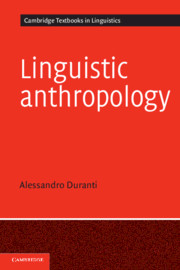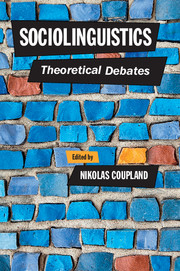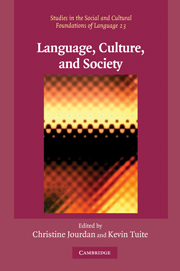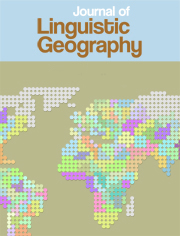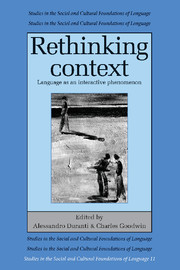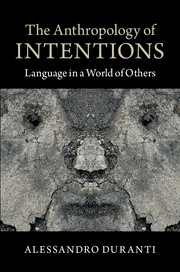Antropología lingüística
In this innovative textbook, Alessandro Duranti introduces linguistic anthropology as an interdisciplinary field which studies language as a cultural resource and speaking as a cultural practice. The theories and methods of linguistic anthropology are introduced through a discussion of linguistic diversity, grammar in use, the role of speaking in social interaction, the organisation and meaning of conversational structures, and the notion of participation as a unit of analysis. An entire chapter is devoted to the notion of culture, and there are invaluable methodological chapters on ethnography and transcription. Original in its treatment and yet eminently clear and readable, Linguistic Anthropology will appeal to both upper-level undergraduate and graduate students.
- New introduction to linguistic anthropology
- Duranti well-known in field, in both Europe and USA. Co-edited successful Re-thinking Context for CUP
- Distinctive approach looking at conversation and interaction
- Linguistic anthropology hot topic at the moment
Reviews & endorsements
'Once in a while a book is published that defines and shapes the content of a discipline, Duranti's Anthropology is one of those books.' Linguistic Anthropology
Product details
May 2002Paperback
9788483230923
544 pages
215 × 139 × 31 mm
0.555kg
4 b/w illus.
This item is not supplied by Cambridge University Press in your region. Please contact Ediciones AKAL for availability.
Table of Contents
- 1. The scope of linguistic anthropology
- 2. Theories of culture
- 3. Linguistic diversity
- 4. Ethnographic methods
- 5. Transcription: from writing to digitized images
- 6. Meaning in linguistic forms
- 7. Speaking as social action
- 8. Conversational exchanges
- 9. Units of participation
- 10. Conclusions
- Appendix
- References
- Indexes.


